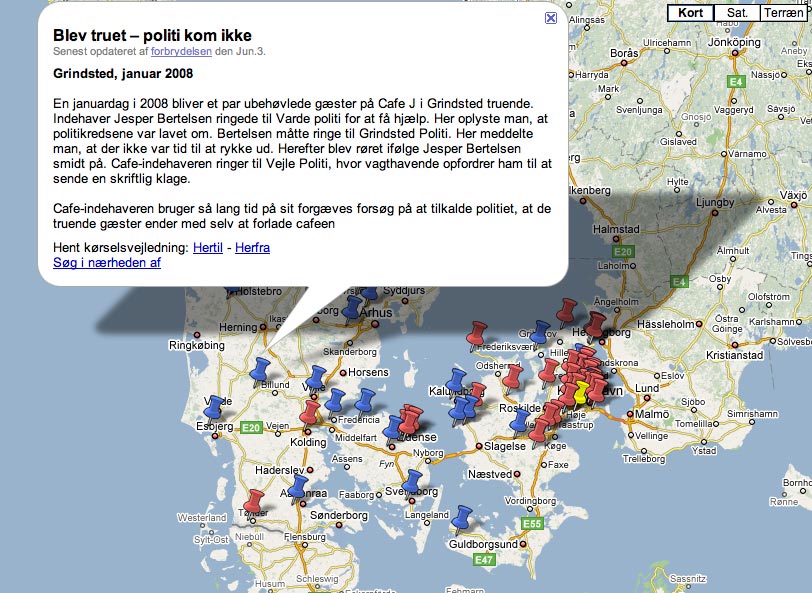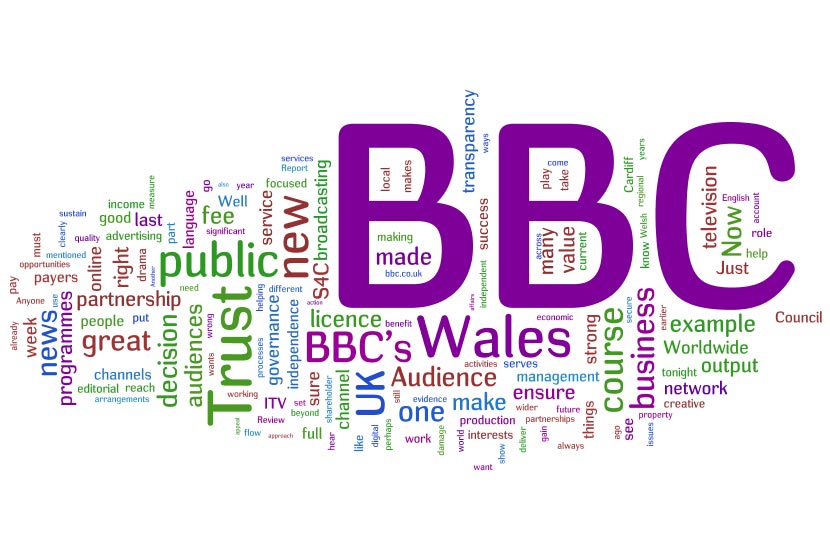As the UK government announces plans for crime maps for offences in England and Wales, Kristine Lowe reports for Journalism.co.uk on how Danish paper Berlingske Tidende is using its own map as a source of news and a public service.
“Crime mapping is getting government push behind it, even if police are resisting,” wrote the Guardian’s technology editor Charles Arthur this week, as the government announced plans to publish local interactive crime maps for every area in England and Wales by Christmas.
In Denmark the national daily Berlingske Tidende is already pioneering the use of crime maps as part of the newsgathering process.
With the help of its readers, the paper has created an interactive crime map detailing how well the police responds to calls from the public.
“We have just had a major police reform here in Denmark and decided to investigate how this has worked. The politicians promised more police on the streets and more money to solve crime. We thought the best way to check the reality of these promises was to get our readers to tell us about their experiences,” Christian Jensen, editor-in-chief of Berlingske, told Journalism.co.uk.
The reader reports are placed on a Google map of the country and, since its launch in May, 70 crimes have been reported and plotted.

One of the crimes reported to the map related to the alleged murder of Danish woman Pia Rönnei.
Despite available patrols in the area, the police force did not send officers to investigate calls from neighbours, who reported screams and loud bangs from an apartment that Rönnei was in – something it has been forced to apologise for after the publicity the story received.
“In classic journalism, it is the journalists who find the stories. In our new media reality, it can just as well be the readers who alert us to issues they are concerned about,” said Jensen.
The newspaper has had two full-time reporters devoted to the project, and used an online journalist, photographer and production company (for live pictures) in stories they have devoted additional space to.
“We encourage people to get in touch with stories both in our paper edition and online, as we see a substantial increase in web traffic when we draw attention to the project in the paper edition,” Jensen explained.
Every single crime report on the map generates the same amount of web traffic as breaking news, he added.
The project has been so successful that the newspaper is preparing to launch another project in the same vein. In the next few days Berlingske will unveil a database on immigration politics, where readers can tell their own stories and read and comment on each others’ accounts of their experiences with immigration authorities.
But the biggest challenge for the paper has been verification:
“That is what makes this complicated. Our journalists read through all the reports to check their credibility, but we do not have the resources to verify every single detail. That has made it even more important to clarify from the outset that we are only reporting what the readers have told us.”

